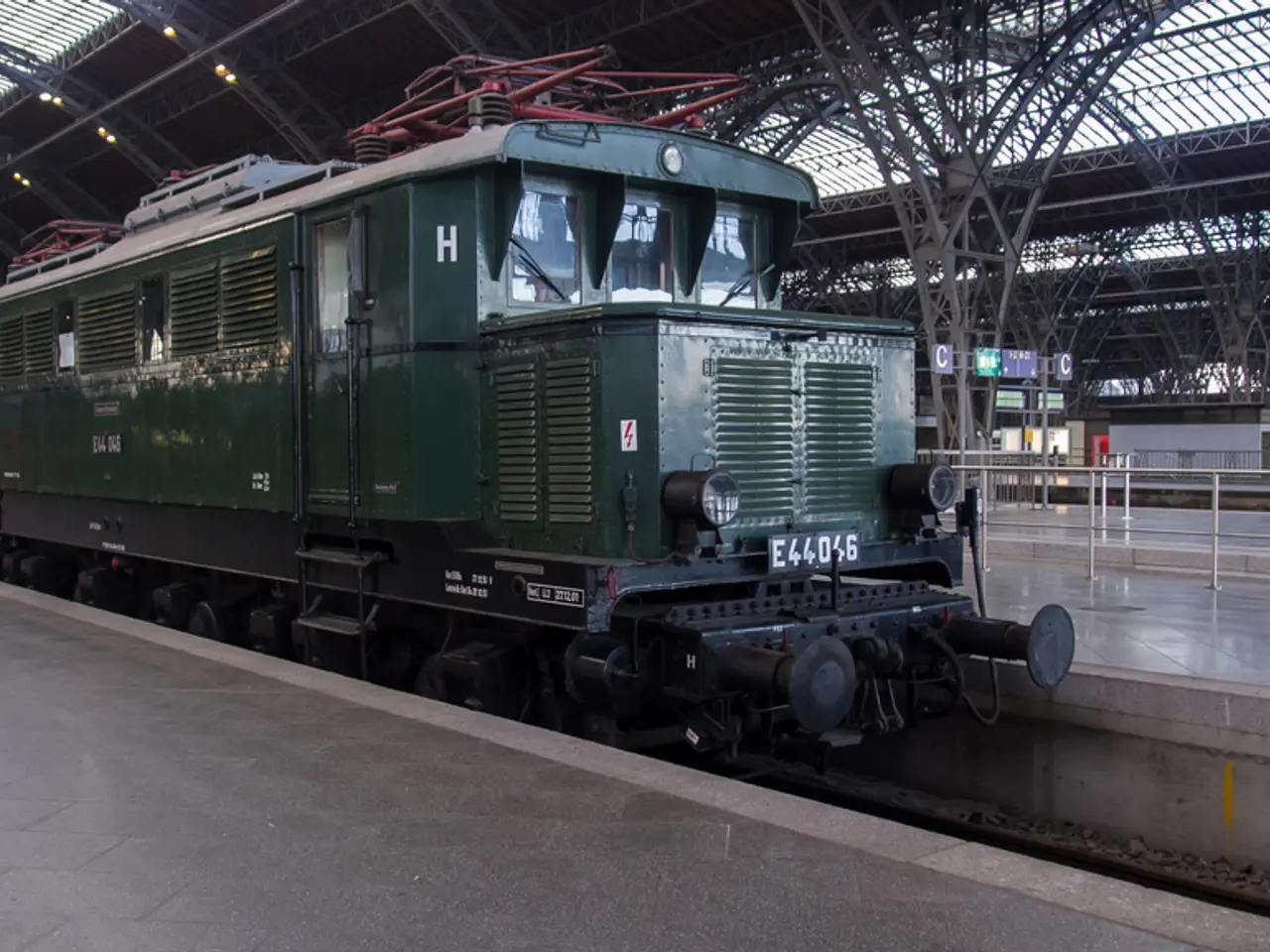"As the train falls out of harmony, so does the conductor"
In the heart of western Ruhr, the sudden failure of S-Bahn line 3 between Essen and Oberhausen has left many rail passengers in disbelief. This prolonged disruption, lasting a month, has been a source of frustration for commuters whose daily routines have been disrupted.
Julia Kahle-Hausmann, a state parliamentarian for Essen, has voiced her concerns, linking the S-Bahn line 3 failure to the hindrance of the mobility transition in the Ruhr region. She asserts that the region requires a public transport system suitable for a metropolitan area. Kahle-Hausmann, along with Frederick Cordes, a member of the Landtag of North Rhine-Westphalia representing Oberhausen and an expert on training and skilled workers, has expressed their incomprehension about the state of rail traffic in western Ruhr.
Cordes, in particular, has attributed the skilled worker shortage among train drivers to insufficient training and overwork, leading to high sick rates. He advocates for better training and working conditions to attract more people to the train driving profession. The ongoing recruitment efforts by Deutsche Bahn (DB) aim to ensure sufficient operational personnel to maintain service levels and support a shift toward more sustainable urban mobility.
Despite these efforts, the greatest cause of poor punctuality on lines including S3 is identified as infrastructure vulnerability rather than staff shortages. DB plans to reduce bureaucracy and streamline operations through automation and digitalization while simultaneously hiring heavily for operational roles, reflecting a dual approach to managing labor issues and improving efficiency.
Commuters like Kahle-Hausmann and Cordes have expressed dissatisfaction with the RE49 as an alternative to S-Bahn line 3. The disruption of the train schedule affects not just travel and waiting times, but also the predictability of daily life. Cordes stated that the failure of S-Bahn line 3 for a month is unacceptable, disrupting the daily routines of commuters.
As Deutsche Bahn continues its recruitment offensive to address the skills shortage among operational personnel, the focus remains on improving infrastructure vulnerabilities to ensure a reliable and efficient public transport system for the metropolitan Ruhr region. The ongoing mobility transition relies on the success of these efforts to provide commuters with a viable and predictable alternative to the disruptions that have plagued S-Bahn line 3.
- The failure of S-Bahn line 3 between Essen and Oberhausen, lasting a month, has highlighted the need for a more suitable public transport system for the metropolitan Ruhr region in industry and general-news discussions.
- Julia Kahle-Hausmann, a state parliamentarian for Essen, and Frederick Cordes, a member of the Landtag of North Rhine-Westphalia, have raised concerns about the state of rail traffic in western Ruhr, emphasizing the importance of education-and-self-development and career-development opportunities in the transportation industry.
- Cordes, an expert on training and skilled workers, has attributed the skilled worker shortage among train drivers to insufficient training and overwork, leading to high sick rates, suggesting the need for skills-training programs and improved working conditions in the finance sector.
- Deutsche Bahn (DB) is addressing the skills shortage among operational personnel through recruitment efforts and a dual approach of automation and digitalization to streamline operations while hiring heavily for operational roles, with a focus on business expansion in the public-transit sector.
- Commuters like Kahle-Hausmann and Cordes have criticized the RE49 as an unacceptable alternative to S-Bahn line 3, highlighting how the disruption of the train schedule impacts the predictability of daily life and the reliability of public transit services in politics and career-development discussions.
- The success of Deutsche Bahn's ongoing efforts to address infrastructure vulnerabilities is critical for ensuring a reliable and efficient public transport system in the metropolitan Ruhr region, thereby supporting the mobility transition and attracting commuters seeking predictable alternatives to disruptions such as those faced by S-Bahn line 3.




